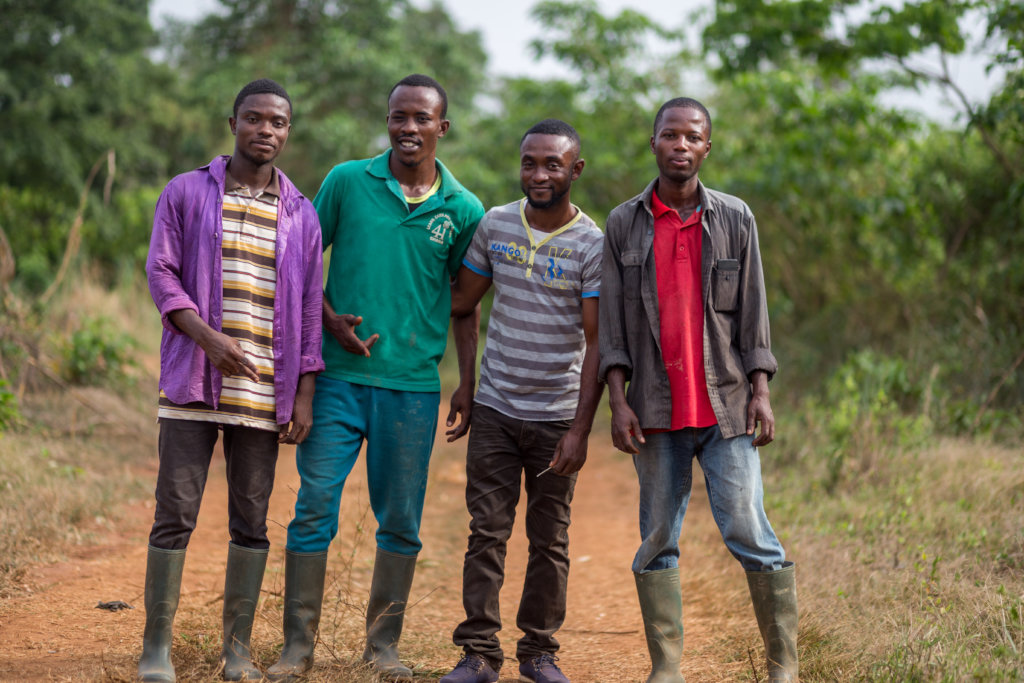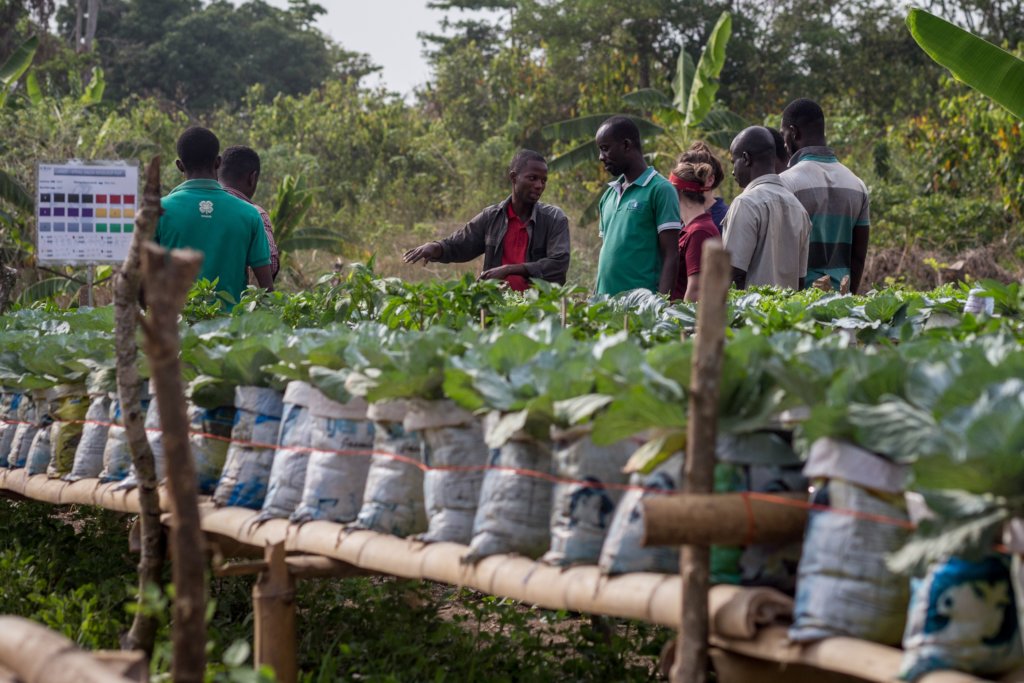By Dennis Asante-Sagoe & Justice Amoka Sam | Graduate Entrepreneur Program Graduates
Ghana’s newest agricultural entrepreneurs - “agripreneurs” - were honored at a graduation ceremony last month in Nkawie, a small, rural community in central Ghana. After graduating from local agriculture university programs, Dennis Asante-Sagoe, who studied crop science, and Justice Amoka Sam, who graduated in general agriculture, completed one year immersed in technical training and business education through the Graduate Entrepreneur Program at Self-Help International.
The Graduate Entrepreneur Program (GEP) works in tandem with the government's National Service program, which requires young people to serve in a non-profit or government space for one year. Often times, placements do not align with a person’s interests or skill-sets, so Self-Help has partnered with local institutions to recruit youth interested in agribusiness to serve and learn alongside staff agriculture specialists while simultaneously taking intensive courses related to business.
The program aims to give recent graduates the practical experience, education and resources they need to start and run successful businesses in agriculture.
Dennis and Justice shared some reflections on the year - read on to hear what they learned through the program.
Teamwork and Project Design
As the first team of students to enter the program, we joined together to focus on one major project during our year long term. Urban Smart Agriculture was the name of the project and we produced cabbage, lettuce, bell pepper, cucumber, carrot, maize and raised meat rabbits using our smart and innovative system of recycling plastic and agriculture waste for agriculture use. The plastic waste was reused as a planting container and rice husk, rice ash and manure was used as plant growth media. The aim of the project with SHI was:
Naturally, we experienced some challenges with our system such as leaching and pest infestation. Support from SHI staff at the AED helped us improve our system by using a wicking capillary irrigation system, which ensures 100% water efficiency and 0% water loss. It is also a 0% water spill system which increases the cleanliness of the system.
Learning Alongside Self-Help
Time with the Agriculture and Entrepreneur Development (AED) team at Self-Help taught us so many lessons in application of agriculture practices, capacity building, and effective information sharing (and lots of fun!).
Several field visits with the AED staff and training sessions with Self-Help International clients exposed us to the world of a social entrepreneur and farmer. We have come to realize, through contact with farmers and students that information is useless if it is not shared, the least of information can bring change and laughter and that there is no greater joy than serving humanity.
In reflecting on our roles in disseminating information to fellow farmers, Justice shares, “What makes me do what I do is that people laugh and I feel happy when I see them listening and think I have special knowledge to impact to them.”
Outside of the practical agriculture information and application, we took courses from SHI staff focused on building our capacity on how to grow a business. We engaged in lessons on marketing, financial planning, report writing, and record keeping, to name a few. The most enjoyable part of this training were the times we were led through hands on activities. The program stresses learning by practice.
Grateful for the Experience
Often times graduates are forced to choose jobs based off of what is available and guaranteed versus for their joy and fulfillment in doing what they truly love to do. And especially as graduates with entrepreneurial passion, we are faced with a big question of how to start and finance our business even if we do acquire the appropriate training.
We had so much faith in the Graduate Entrepreneur Program, it was an answer to our prayers. We felt alive and knew our dreams and passion of becoming an agriculture entrepreneur had a great chance to survive with a program like the GEP. Our dream lives because Self-Help International believed in us and the future of agriculture graduates.
We are eager to practice all the work with the knowledge we have as entrepreneurs that we gained through the GEP. We are confident of the success of our enterprises.
In the future, reports to this project on GlobalGiving will focus on our agriculture and youth extention work. Follow update about the Graduate Entreprenuer Program here: https://www.globalgiving.org/projects/agripreneurs/
Full names of GEP graduates are used with permission.
By Emmanuel Obiri Laryea | Agriculture & Entrepreneurship Program Officer
By Emmanuel Obiri Laryea | Agriculture & Entrepreneurship Program Officer
Project reports on GlobalGiving are posted directly to globalgiving.org by Project Leaders as they are completed, generally every 3-4 months. To protect the integrity of these documents, GlobalGiving does not alter them; therefore you may find some language or formatting issues.
If you donate to this project or have donated to this project, you can receive an email when this project posts a report. You can also subscribe for reports without donating.
Support this important cause by creating a personalized fundraising page.
Start a Fundraiser
